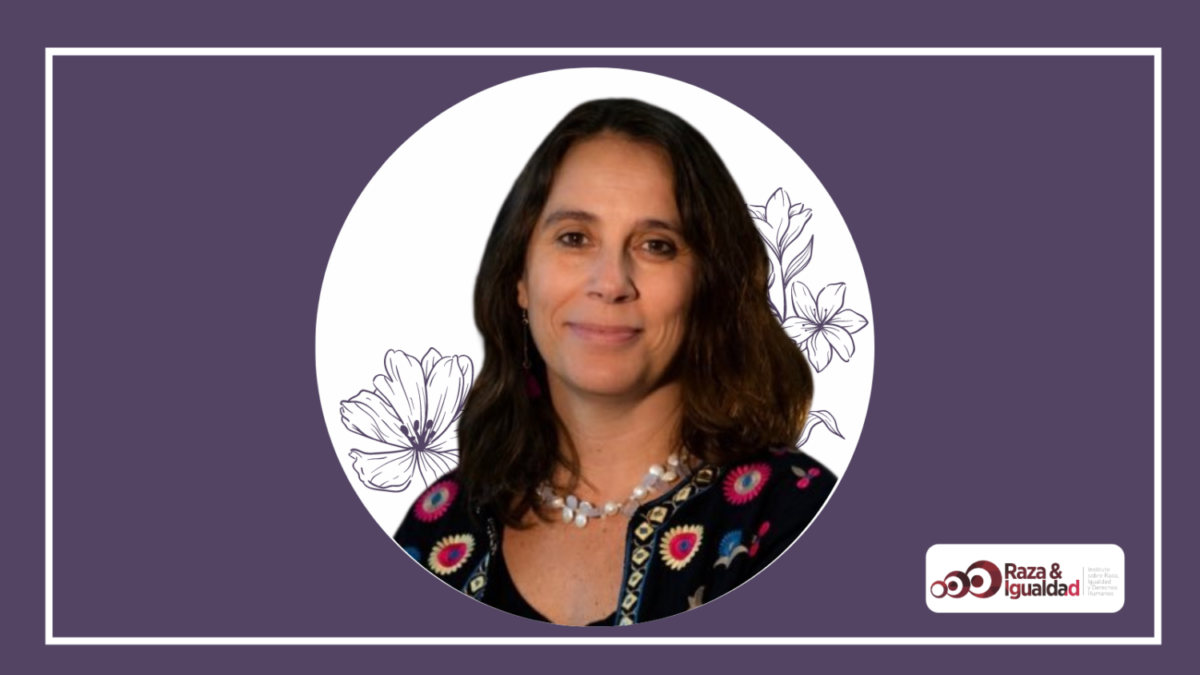Race and Equality recognizes and appreciates the role of Antonia Urrejola in promoting human rights in the region
Washington, D.C., November 12, 2021. – The Institute on Race, Equality and Human Rights (Race and Equality) joins in the expressions of recognition and gratitude to the President of the […]

Washington, D.C., November 12, 2021. – The Institute on Race, Equality and Human Rights (Race and Equality) joins in the expressions of recognition and gratitude to the President of the Inter-American Commission on Human Rights (IACHR), Antonia Urrejola, for her outstanding and committed work for the promotion and protection of human rights in Latin America and the Caribbean. We especially recognize the key role she played in monitoring and making visible the grave human rights situation in Nicaragua since April 2018, as well as pushing for the adoption of measures to address the crisis.
This Friday, November 12, 2021, the General Assembly of the Organization of American States (OAS) elected representatives of its organs, agencies, and entities, including the Inter-American Commission on Human Rights. In this process, Urrejola presented her candidacy for reelection as Commissioner of the IACHR on September 22, a role she has held since January 1, 2018 — after being elected in June 2017 — which ends on December 31.
Within the IACHR, Urrejola is currently the Rapporteur for Colombia, Ecuador, Guyana, and Nicaragua, as well as the Rapporteur on the Rights of Indigenous Peoples, and the Rapporteur on Memory, Truth and Justice. In addition, on March 15, she was elected internally to the IACHR as its President, along with Julissa Mantilla and Flávia Piovesan as its first and second Vice President. Notably, it is the first time in history that this body’s board was composed entirely of women.
In 2018, Urrejola was also the Rapporteur for Brazil, Jamaica, Trinidad and Tobago, Uruguay, and Cuba. In the case of the latter country, her Rapporteurship was instrumental in monitoring and making visible the human rights situation on the island. As the Rapporteur for Colombia and on the Rights of Indigenous Peoples, she has closely observed the problems faced by this population in the country, mainly because of their territories being intruded upon by illegal armed groups and the lack of implementation of the Ethnic Chapter of the Peace Agreement.
In this Friday’s vote, held in the framework of the 51st OAS General Assembly, most of the country representatives voted for Joel Hernández García, of Mexico (27 votes), Carlos Bernal P, of Colombia (21 votes), and Roberta Clark, of Barbados (23 votes) as new members of the IACHR, thereby not reelecting Urrejola.
A friend of Nicaragua
Since the socio-political and human rights crisis broke out in Nicaragua, Antonia Urrejola’s voice has been particularly tireless in two ways. On the one hand, the Chilean lawyer and specialist in Transitional Justice has kept the critical situation in the country visible, and on the other, she has been a close figure of consolation and hope for the relatives of political prisoners, exiles, and those who have been tragically murdered. Her forthcoming departure from the IACHR causes a shock within civil society and human rights organizations in the country.
Likewise, international human rights organizations, such as Race and Equality, are particularly shaken by the news. Urrejola has been a key ally in the process of monitoring the crisis in Nicaragua and influencing the Inter-American System for the Defense and Protection of Human Rights in the country. Race and Equality counts on her committed participation in international events, campaigns, and thematic hearings.
When referring to the situation in Nicaragua, Urrejola has been insistent in stating that impunity and injustice will not perpetuate in the country. Today we return to the words she provided Race and Equality with during an interview conducted on the third anniversary of the crisis in Nicaragua: “Efforts in international human rights law usually do not have immediate effects, but it is also true that history shows that these are efforts that ultimately produce results.”
With this hope as well as the commitment to continue the work of defense and protection of human rights in Nicaragua, Race and Equality extends our sincere recognition and gratitude to Antonia Urrejola, and expresses our desire to continue to work hand in hand in the promotion of fundamental rights in the region.

